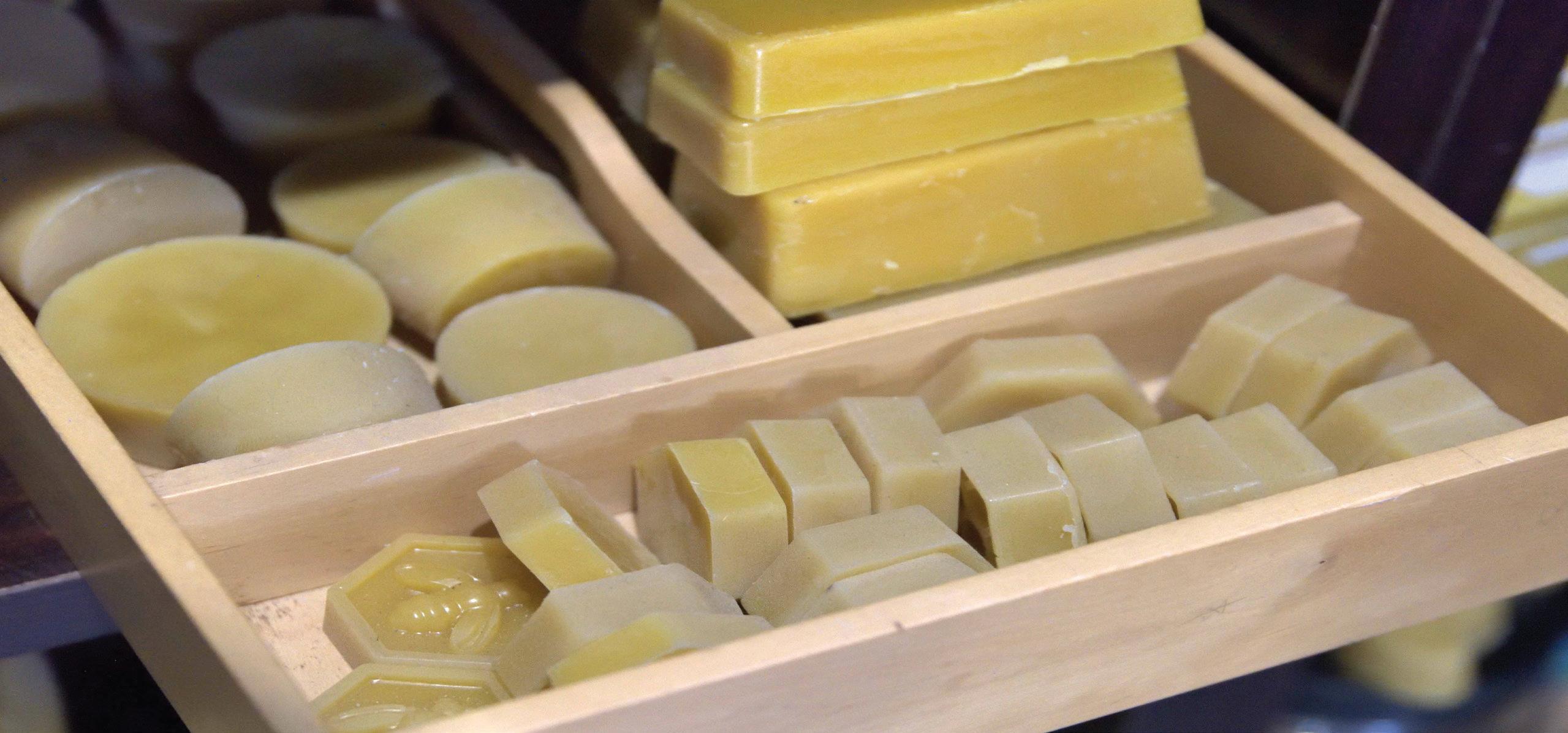
8 minute read
Andrew Stanish - Living with Bees
Living with Bees
By Anthony Kilner
Andrew Stanish started Australian Bee Supplies in 2019, however he’s had more than 10 years working with these amazing insects. Here’s a snippet of his life Living with Bees.
How did your interest in bees start?
“My interest in bees started when I was in University doing a Scientific Photography Degree creating a portfolio specialising in photomicrography folio with a friend. We chose insects. That’s when I got metaphorically stung shall we say, however it wasn’t until 20 years later that everything fell into place. There was a time when my wife had to go overseas for six weeks to look after her mum. I was between contracts so I threw myself into doing every single possible bee course I could.
“Everything from swarm collection to extractions. With a construction background it worked well, pulling walls down to extract bee nests and knowing how to do it safely. My wife came home to find five hives close to her Hills Hoist and it was hands in the air screaming! “Oh, they are going to kill me, they are going to kill me.” “No they won’t kill you, ” I replied.
“It took about three days and she was outside explaining which water bowl was for which hive as the bees from this hive liked that water and so on.
“From five hives it went up to ten, then 20 that I keep at home as my research hives plus I run another 50 or so in a couple of other apiaries. I’d normally run between 50 and 100 depending on conditions and time. “I have a colleague who runs 500 hives, and with him developed a breeding program for queens and Nucs. A Nuc is a bee starter colony that many new hive owners start with rather than starting with a swarm hive or buying an older full hive, which can be hit and miss when it comes to docility and quality of bees.
“As a part of this whole business Australian Bee Supplies was started and has grown substantially out of Melbourne.”
I found when I opened my first hive, the buzzing and vibration was really soothing – meditative. Do you find this?
“It’s therapy- I honestly believe it’s therapy on many levels.
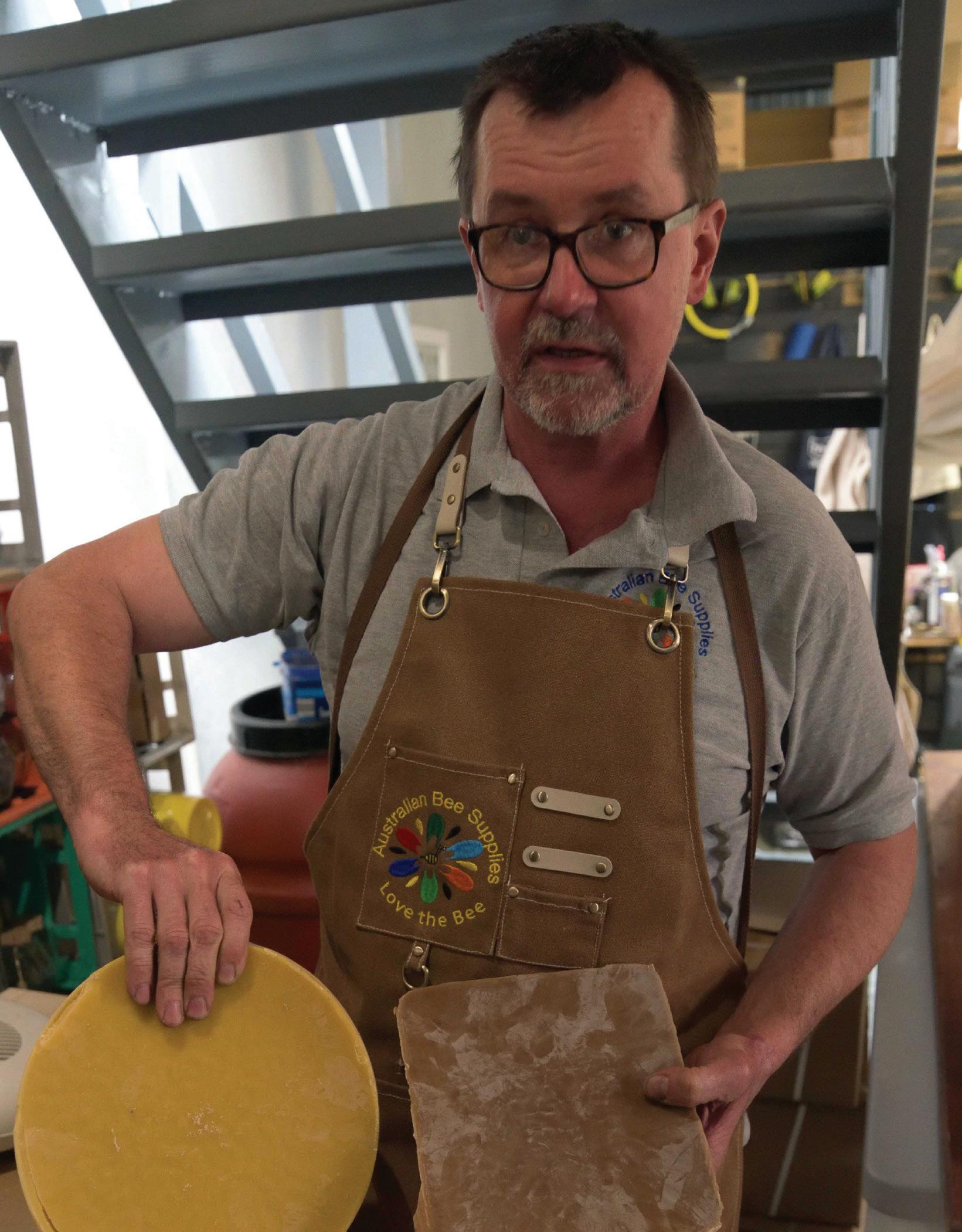
Since I started bee keeping I just don’t get sick. Is it because of the bee venom, is it because of the pollen, is it because of the honey? Most likely it’s the holistic experience. When you do a hive inspection it has to be thought out, systematically - it’s like meditation. When I worked in construction it was like go, go, go, and when I’d get home I’d still be go, go, go. I found if I did a couple of hive inspections, by the time I went through the process getting everything ready from tools to the smoker and then opening the hive and getting distracted looking for brood, the queen and everything else you have to do, by the time I finished I realised I didn’t feel so bad after all. It’s very relaxing.”
You mentioned different types of bee keeping. Can you explain that a little more?
“Bee keeping requires the letting go of fear. The first time you open a hive it can be scary for many people. Once the fear is gone however, is when bee keeping comes alive. “In my world there are two types of bees and bee keepers. You have the backyard bee keepers and some of them are incredibly fine as an apiarist and then you get some that just grab a swarm thank you very much and that’s a bee hive.
“Then we have two types of professional bee keepers. One; those who do it purely for honey. The docility is not their primary requirement, their business model relies on producing maximum quantity of honey. “My colleague and I fall into the second category, we love the bees and care for them. It’s livestock for us and we know if we look after them, they will look after us.
“The bloodlines you get into producing queens and breeding queens, is a different kettle of fish and a priority for us. If your queen dies you can buy a standard queen for around 30 to 50 dollars plus postage, depending on where you get it from. “A breeding queen, a queen that has been artificially inseminated, a queen specifically designed for breeding, will cost anywhere from 3,500 to 10,000 dollars. All of a sudden the game changes drastically. Once you start playing with those sorts of genetics the experience is different.
“If people start with a swarm they won’t know the temperament of the queen they are getting and it’s a 50/50 proposition. Some can be
good because effectively you are getting a one year old Nuc however others not so good, they could be aggressive or sick bees.
“I’ve done inspections on a hive where the bees have chased us 100 to 150 metres from the hive. It’s not nice and even fully suited can be a scary experience for some. I’ve noticed when the bees get angry they release a pheromone that smells like banana; a warning they are not happy.
“The bloodlines of the bees can be chosen specifically for the queen components you want. For us, the most important things are docility, nectar collection and disease fighting ability, the rest of them aren’t really a priority.
“Honey producers have different priorities; docility is not the first requirement. They might be dealing with five thousand hives and they don’t have time for it, however if it’s hives at home then they are good qualities to have. These hives are an absolute pleasure to deal with. I have done whipper snipping around them, and they haven’t really done anything. I have other ones that can’t stand the mower or the whipper sniper and become aggressive. “It’s like a pet or a child, once you understand what their acceptable behavior is, you can work around it. They get to know you. Some people say that the bees don’t recognise people, I know that’s a fallacy. My bees know when I’m in the vicinity, same with my wife and kids, there’s no issue with them, however when someone new comes in they will send out scouts to see what’s happening. It could be the smell, the pheromones I’m not sure what, they definitely know who you are. Of course we talk to them all the time too!
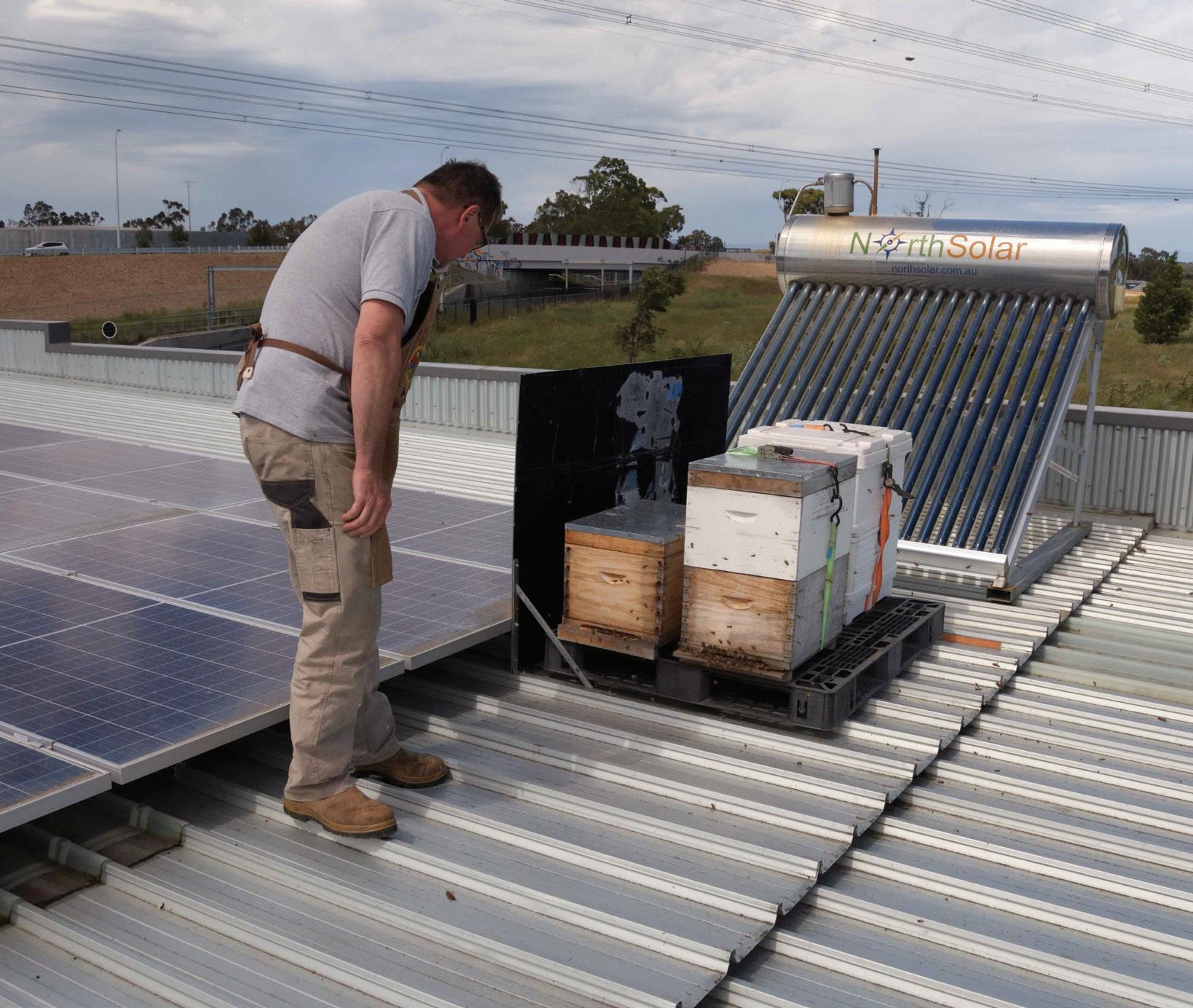
“I always say you should treat your bees like other humans – no different, it’s simple, if someone comes up to the front door and says excuse me can I go out the back and check out your trees you’d let them through – if you go slamming through the door without asking you’ll get a clip over the ear - definitely.
“They don’t like humidity much, they get a bit narky. It’s the same thing with people. Wind and rain it’s the same. Get a 20 to 24 degree sunny day and they are happy no problems.
“Getting to know your bees is like dealing with any animals, you just have to understand what they are communicating.”
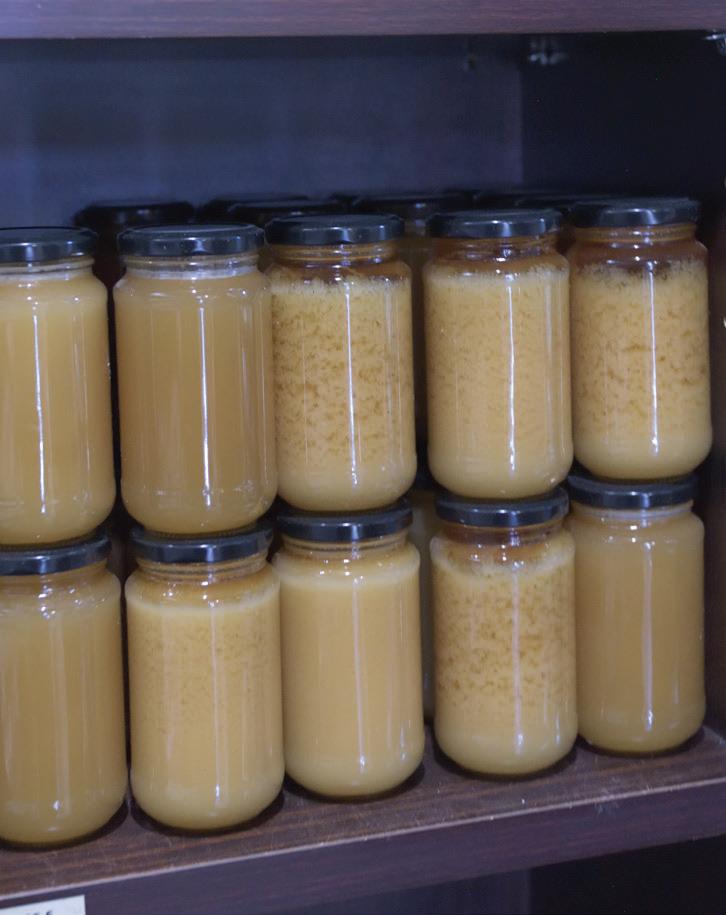
What advice would you offer new bee keepers or people wanting bees?
“Throw yourself into it whole heartedly. Do the workshops, get mentoring and get into it. “You only get stung when you do something stupid – it’s that simple. They are only protecting their colony.
“When it comes to experience you can have years of experience doing the same thing with one bee hive, or by really getting involved hard-core by getting involved with multiple beehives, you can have years of experience in just one year! You’ll learn significantly quicker.
“There’s a lot to learn however the rewards for each person, the family and the environment
are worth the effort.” Andrew spent a solid hour talking all things living with bees. Certainly a lot more than we could fit into our hallowed pages. Anyone interested in finding out more, can visit Andrew’s Facebook Page or
the Australian Bee Supplies website.
Anthony is available for 1:1 Readings and Bridging Realms Core Issue Vibrational Healing™ sessions.
Image Credit: Anthony Kilner
Estate’Design Group 0418 338 559





Award Winning Architects & Interior Designers Eco-Sustainable Residential / Multi Residential Commercial Retail / Hospitality __________



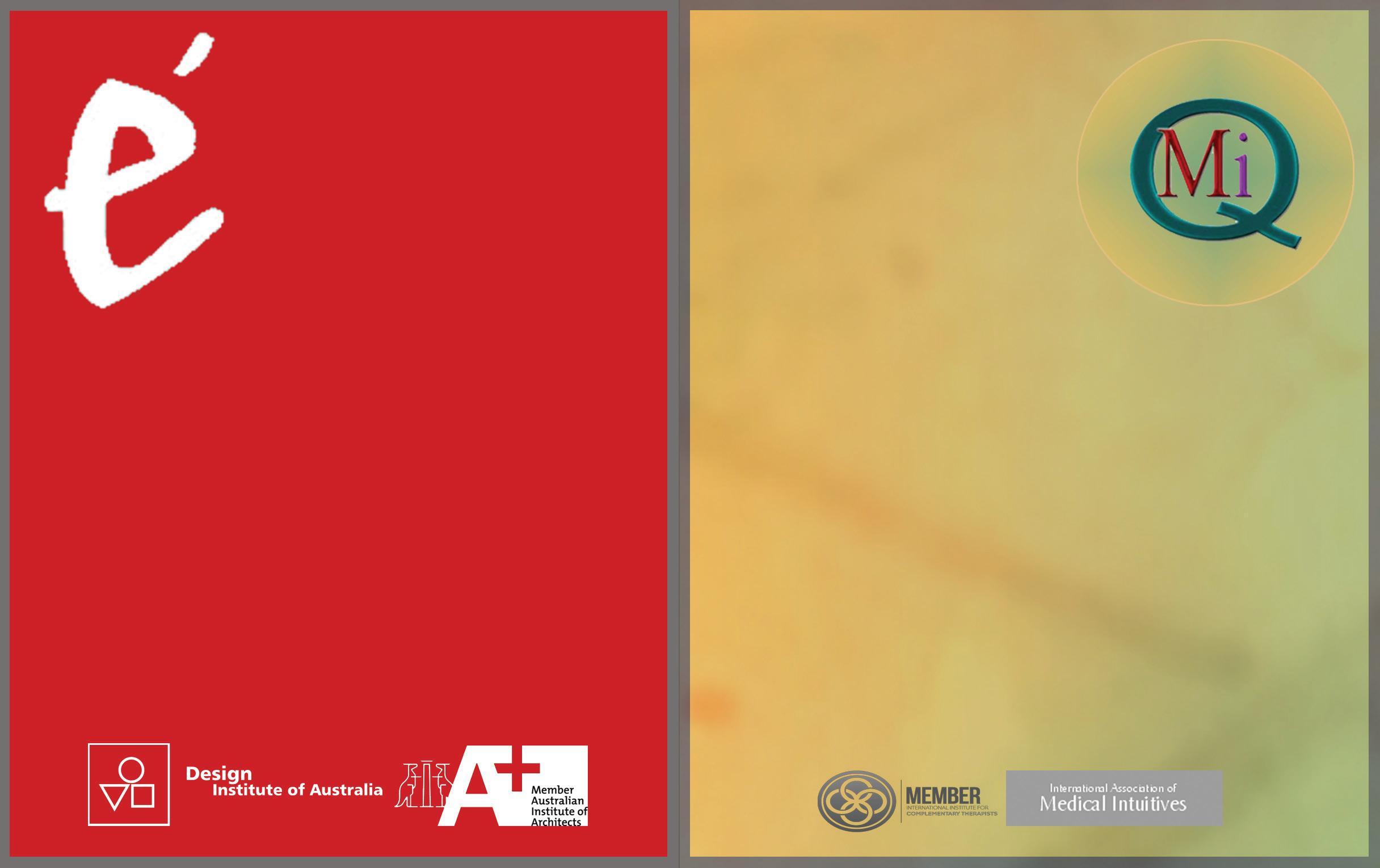
edg@estatedesigngroup.com.au www.estatedesigngroup.com.au
Lia Estate’ 0408 398 303
Quantum Energy Healing Medical Intuitive Wellness Facilitator Quantum Matrix Energetix Reiki / Spiritual Healing Art Therapy & Creativity CorporateCorporate & & PersonalPersonal carecare ________










